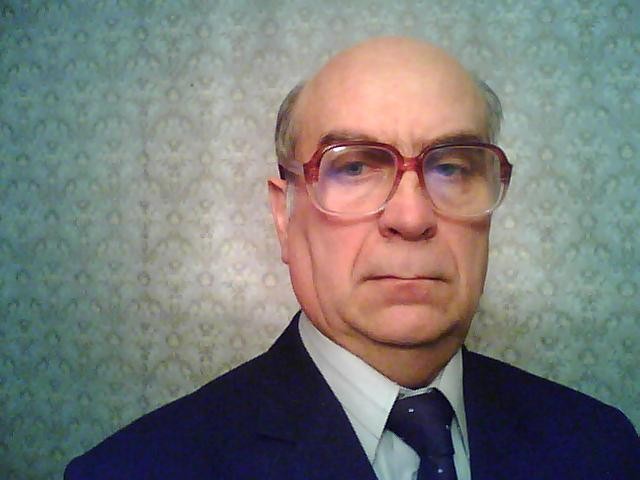 Finished school in Poltava region, majored at KPI in Cybernetics of Electric Systems. Finished KPI in 1972, after that, worked for 3 years in industry. In 1975 enrolled on a postgraduate course, in 1980 defended PhD thesis. 2–3 years worked as a scientific associate, then became a lecturer.
Finished school in Poltava region, majored at KPI in Cybernetics of Electric Systems. Finished KPI in 1972, after that, worked for 3 years in industry. In 1975 enrolled on a postgraduate course, in 1980 defended PhD thesis. 2–3 years worked as a scientific associate, then became a lecturer.
Used to read such courses as Numerical Methods, Programming Languages, Complex Systems Modeling. Now teaches “Programming,” “Application Software.”
What hobby do you have?
Possibly, taking pictures. I’ve been doing amateur photography since school years. Now I take pictures a lot, for instance, when I go traveling.
Do you enjoy traveling?
Maybe a little. I used to travel a lot all around the USSR back in the day.
Is there any city from your past journeys that left good memories?
You know, I can’t really tell. The thing is, I’ve always returned to Kyiv with a sense of relief, regardless of those fancy cities and places. I get tired too fast, and long to come back.
So, can we say Kyiv is your favorite city?
I guess so.
What do you do in your spare time?
I listen to music from time to time. My favorite musician is Andy Williams. I like his music a lot.
What did you want to be when you were a child?
Well, I can’t say I dreamt of a certain career. Since childhood, I’ve liked electrical engineering, radio engineering, various experiments. Back at school, we used to construct different radio receivers, transmitters, and it was a lot of fun. Actually, this is why I joined KPI.
Did you attend any circles?
I used to play the button accordion, participated in school contests. But I don’t think I can play anymore.
Tell us a little bit about your family.
As any other man, I’ve got a wife. Also I’ve got two children, a son and a daughter, and three grandchildren. The daughter at first joined KPI (applied math), but she didn’t quite like it. So she entered economics, banking. My son, on the other hand, followed in my footsteps, majored in the same field.
Do you have any special memories from your student life?
Many things happened. I guess the most interesting experience is in fact what you missed. Every year they used to send the students to a farm near Kyiv, where we would gather different fruits and vegetables for a month. There was a special student atmosphere. It was a lot of fun.
Do you keep in touch with anyone from your group?
Of course. For example, at least four people work at KPI, we closely communicate. As for the rest, we meet at the anniversaries of graduation.
Was it hard to study?
Yes, it was. Harder than nowadays.
Let’s talk about your academic activities. Do you have favorites among the students?
I never have favorites. I divide students into two categories. The good ones are those who work, and the bad ones are those who loaf around and try to deviously get good marks and diploma.
What do you think of expelling students?
I think it’s always bad to expel students, that’s why I’m always careful with that. These are extreme measures.
You can often hear from teachers that earlier students were better than nowadays. Do you agree with that?
Yes, I think that students are getting weaker and weaker with each year. This is a general tendency, and it’s not students’ fault. The thing is that the overall number of math and physics hours has been reduced. Also, in my time everyone tried to study well at school, study math and physics. Things were that way because in my time people praised astronauts, nuclear physicists, people who created something. And now what role models do they have? Let’s take movies for the sake of argument. We have policemen, guys forced to become criminals, maybe, people of art. As for me, this is very sad. Advanced countries throw all the forces in production, in brains, purchase professionals. We, on the other hand, develop banks, commerce, and pharmacy.
What can you tell about the quality of education in universities?
I can speak only for KPI, and I think that they teach well. Mainly because they teach to do a lot with one’s hands, create something, like term projects, theses… This is what I call real education.